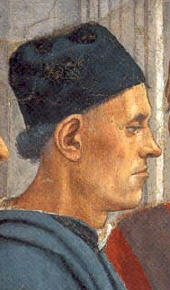Births


Death years link to the corresponding "[year] in poetry" article:
1480:
- Pir Sultan Abdal (died 1550), Ottoman Empire
- Girolamo Angeriano, also known as "Hieronymus Angerianus" born sometime between about 1470 and about 1490 (died 1535), Italian, Latin-language poet; [7] sources differ on his birth year, with some stating 1470, [7] [8] others giving "c. 1480" [9] [10] and another c. 1490 [11]
- Giovanni Cotta, born about this year (died 1510), Italian, Latin-language poet [7]
- Giovanni Guidiccioni (died 1541), Italian
- Riccardo Sbruglio, born about this year (died 1480 – died after 1525), Italian, Latin-language poet [7]
1481:
1482:
- Andrzej Krzycki (died 1532), Polish archbishop, Latin prose writer and Polish-language poet often considered one of Poland's greatest humanist writers
- Bernardim Ribeiro (died 1552), Portuguese
- Matthias Ringmann (died 1511), German cartographer and humanist poet
- Antonio Tilesio (died 1534), Italian, Latin-language poet [7]
- Mavro Vetranović (died 1576), Croatian writer, poet and Benedictine friar
1483:
- November 10 – Martin Luther (died 1546), German Protestant leader and hymn-writer
- Benet Burgh (birth year unknown), English translator [3]
- Fuzûlî (فضولی) (died c. 1556), Ottoman Empire
- Aurelio Casellio (died 1552), Italian, Latin-language poet [7]
- Andrea Navagero (died 1483 – 1529), Italian, Latin-language poet [7] [12]
1484:
- Jón Arason (died 1550), Icelandic Roman Catholic bishop and poet
- Purandara Dasa (died 1564), Hindu composer of Carnatic music and Kannada poetry
- Niklaus Manuel (died 1530), Swiss, German-language poet
- Giulio Cesare Scaligero, (died 1558), Italian, Latin-language poet [7]
- Paul Speratus (died 1581), German
- Huldrych Zwingli (died 1531), Swiss theologian, priest, poet, and writer
1485:
- November 30 – Veronica Gambara (died 1550), Italian poet, stateswoman and political leader born in Lombardy
- Hanibal Lucić (died 1553), Croatian poet and playwright
- Nikolaus Decius (died sometime after 1546), German
- Marco Girolamo Vida born about this year (died 1566), Italian, Latin-language poet [7]
1486:
- Pedro Manuel Jiménez de Urrea, (died 1535), Spanish Renaissance poet and playwright
1487:
- Petar Hektorović (died 1572), Croatian writer, poet and collector
1488:
- January 6 – Helius Eobanus Hessus (died 1540), German, Latin poet
- Ulrich von Hutten (died 1523), German
- Michael Weiße (died 1534), German theologian and hymn writer
- Yang Shen (died 1559), Chinese poet
1489:
- Francesco Maria Molza (died 1544), Italian, Latin-language poet [7]
- Thomas Müntzer (died 1525), German
- Rupa Goswami (died 1564), Hindu devotional teacher, poet, and philosopher


